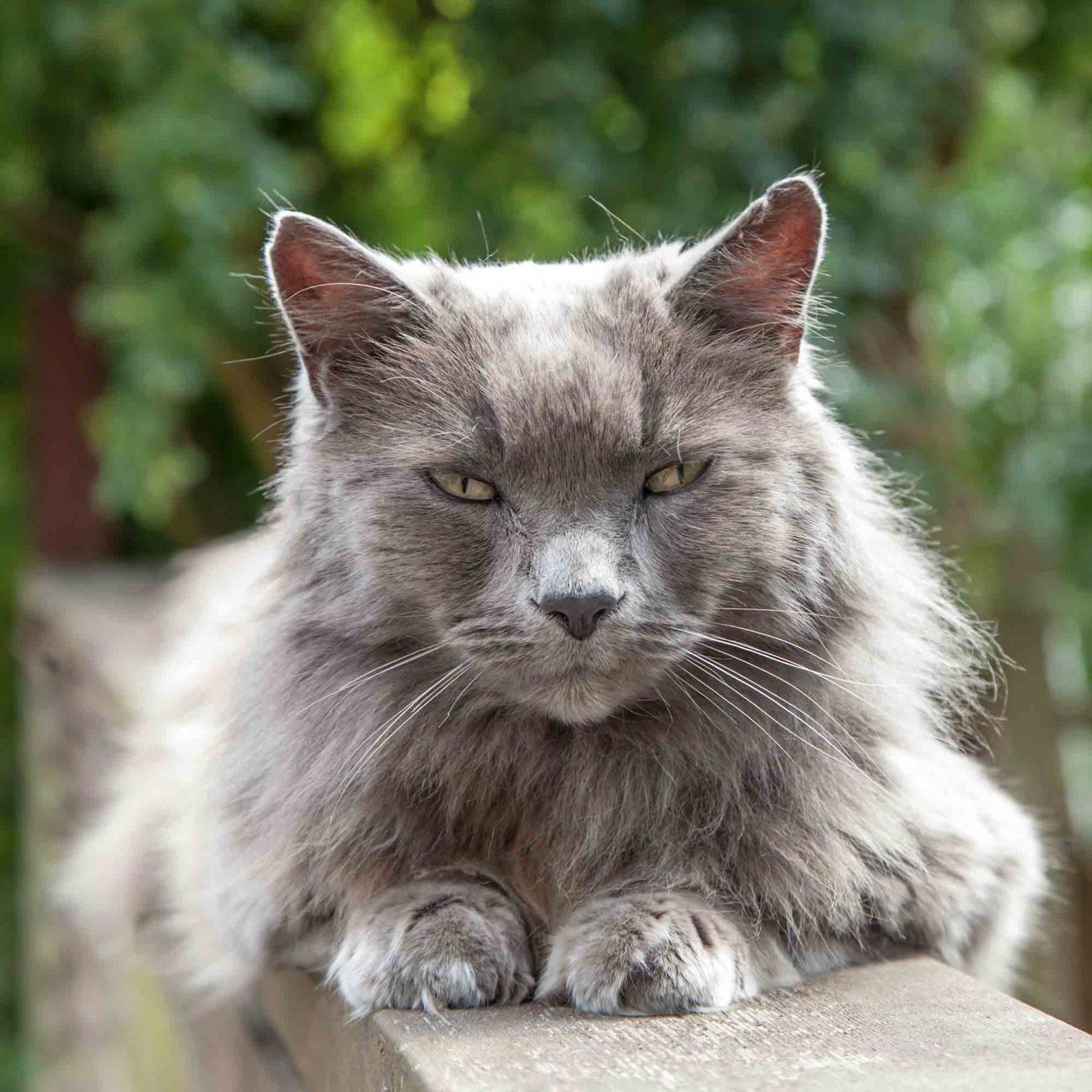The Golden Years: Senior Cat Care
 With many cats now living into their late teens and early twenties, we have even more time to love our kitties. Making that time together the best it can be is one of our most important goals at All Creatures Veterinary Hospital of Brooklyn.
With many cats now living into their late teens and early twenties, we have even more time to love our kitties. Making that time together the best it can be is one of our most important goals at All Creatures Veterinary Hospital of Brooklyn.
Keep reading to see why senior cat care is so important, and what things you may need to be aware of when caring for your sweet feline.
Natural Instincts
Cats are mysterious creatures. Many people see them as fiercely independent and not in need of much care or human interaction, but nothing could be further from the truth.
Studies show that cats thrive and are happiest with regular and loving social interaction from the people in their lives. If your cat is hiding away, or your well socialized cat is suddenly not interested in as much interaction with you, it’s possible that one of their most basic survival instincts is at play – that of hiding pain and discomfort. If this occurs, it’s even more urgent to bring your kitty in to see us, as senior cats often hide because of treatable and manageable conditions.
Age Is Not a Disease
Many people feel that older pets should naturally slow down and that it’s normal for them to not be as active, but this is not necessarily the case. Age is not a disease, and older pets can be just as healthy and fit as their younger counterparts. But because cats age so much faster than we do, it’s also important to know that senior cats benefit from more frequent exams (twice a year) to take advantage of our early intervention in any illness or discomfort.
Your older cat may show signs of pain and discomfort that you might not catch. Common signs of discomfort that should be a signal to see us are:
- Vomiting
- Reluctance to jump up to previous favorite spots
- Constipation
- Diarrhea
- Skipping meals (very dangerous in cats)
- Changes in drinking habits (more or less than normal)
- Difficulty chewing, messy eating, or chewing on one side of the mouth
- Straining to urinate
- Limping
- Hiding from you (if not previously normal)
- Weight loss
- Vision problems
- Reluctance to be touched, or not seeking as much social interaction
All of the above signs are possibly caused by treatable and/or manageable diseases. Don’t let your older cat suffer in silence – we can help! Scheduling regular preventive care exams before you notice any of these problems helps us catch small problems even before your cat is exhibiting any signs. Not only is this better for the cat, but it’s better for your wallet, too.
Senior Cat Care
Veterinary professionals agree that senior cats are between the ages of 7-10. Geriatric cats are older than 10 years of age. Here are some of the most important things you can do to support senior cat care:
Schedule regular wellness exams. We do a complete physical exam and look for any changes. We’ll talk to you about anything you’re noticing at home. And, we’ll do some tests to check for early signs of disease, such as a CBC, blood pressure, chemistry panel, thyroid levels (T4), and a urinalysis. More testing may be recommended based on the results of these tests.
Monitor health at home. Because your senior cat may hide any health issues, it’s important to be aware of any early signs of discomfort. Watch for sudden changes in appetite, weight gain or loss, poor coat or a change in grooming habits, and reluctance to jump up to favorite resting spots. Hiding and withdrawal from social interaction are often warning signs.
Keep up with basic care. Although cats are good groomers, you should also regularly brush your senior cat and run your hands over their body. This not only keeps the coat, nails, and skin in better condition, it allows you to notice any small changes in body weight or health. Parasite prevention, dental care, vaccinations, and good nutrition and exercise are all still vitally important to your senior cat’s health.
Do a comfort check. Make sure your older friend is still able to access food, water, and their litter box. If they have difficulty, it may be time to rearrange things.
Give us a call for ideas or if you need help with any of these suggestions. If we work together, we can ensure your cat enjoys his or her golden years!

